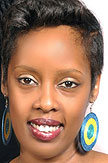I’m sure you’ve met at least one of these people in your life. People who are successful and passionate about their careers, yet haven’t fallen over the precipice into becoming workaholics.


I’m sure you’ve met at least one of these people in your life. People who are successful and passionate about their careers, yet haven’t fallen over the precipice into becoming workaholics. They balance their busy professional lives with family, exercise and some other random complex past-time such as rock-climbing or bird-watching. They manage to stay disease-free, experience no stress-related conditions such as heart arrhythmia, brain aneurysms or bad breath. Also, they get time to mentor youth, visit orphanages and organize soup-kitchens. Or something to that effect. They are, without a shade of doubt, above average.I often wonder how they do it. Because for the life of me, not even marked diaries, calendars, activity-lists and countless reminders can render me as organised as these ‘super’ beings.However, I didn’t have to look far into the above-average achievements of such people. As a country, Rwanda’s allergy to mediocrity means that there are numerous above-average people whose contributions have brought Rwanda to where it is today. The architects of the Agaciro Development Fund (AgDf) for instance, have enabled this tiny nation a chance to forge past the average, and for the first time, make possible the reality of a financially autonomous African state (Sub Saharan, to be precise). All our talk of weaning ourselves off donor dependency starts with this long-term collective effort – a sacrifice in the beginning but a reward at the end. There are other instances of Rwanda’s inclination toward above-average standards, ideas and solutions. That is why I was dissatisfied to see that this approach wasn’t exactly part and parcel of the recently concluded 2012 Miss Rwanda Beauty Pageant. As I’m sure many were, I was curious as to how this beauty pageant would go, and closely followed vibrant debates on the pageant, leading to the event finale this past weekend. There were candid opinions in local print and social media platforms, on why the event itself was not the best utilization of time and resources – resources which consisted of tax-payer’s money.At the other end of the spectrum, there were also some pretty lucid arguments on why this event was a groundbreaking initiative ushered in by government, to be subsequently undertaken by the private sector in the future. Healthy debate it all was. My particular concern was during the event itself. How difficult was it to produce a line-up of contestants whose responses to the judges’ questions was free of the gaffes typified by such pageants? After a month of training, was it impossible to produce contestants whose eloquence was unmatched? Most beauty pageants are full of cringe-worthy moments, when the beautiful young lady is asked the simplest thing which she fails to answer; thus reinforcing the idea that beauty and brains rarely go hand in hand. I just wish this particular event would have made more of an effort to steer away from the stereotype of beauty pageants, and showcase young ladies whose intellectual capacities was clearly far from mediocre and above average. To be fair, the theme ‘Beauty with a Purpose, With A Vision’ was somewhat reflected in the pageant. But, for a country renowned for its high standards, I assumed the pageant would be reflective of this, down to the articulation from the beautiful young ladies on stage. Then again, there’s always Miss Rwanda 2013, is there not?




